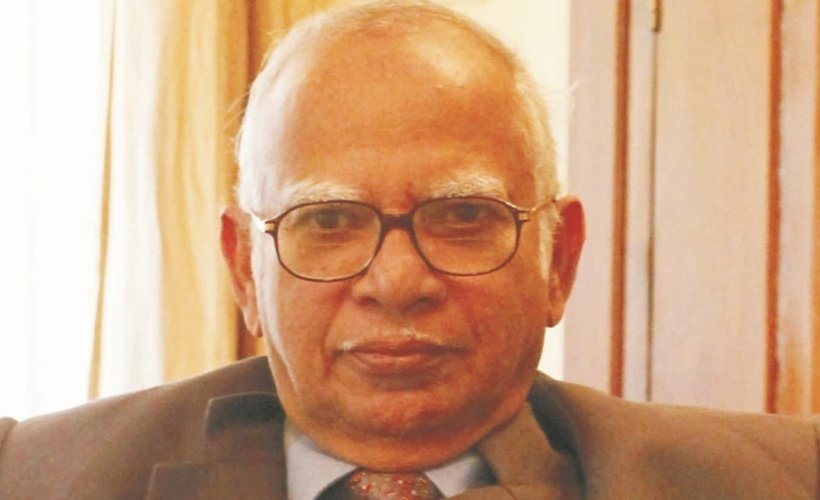
V B PRABHU VERLEKAR spells out a complete guide in respect of tax implications on sale of immovable property
A large number of property transactions take place in Goa. The Government has made special provisions to curb black money by levy of tax on the basis of stamp duty valuation, compulsory payment for property deals through account payee cheques and TDS on payments. Tax payers can also avail exemptions from payment of taxes on capital gains. This article gives complete guidance in respect of tax implications on sale of immovable property.
Under Income Tax Law, profit on sale of immovable property is called capital gains. If the property is owned and held for more than 24 months before date of sale, it is a ‘long term capital gain’ and ‘short term capital gain’ if the holding period is 24 months or less. The profit or gain on sale or transfer of an immovable property is the difference between consideration received on transfer of the immovable property and the amount spent on acquisition, improvement and expenditure incurred in connection with the transfer such as stamp duty, registration charges, lawyer’s fees, brokerage, etc.
When the property is acquired by way of gift, will or inheritance; the date and the cost of acquisition is the date and cost at which the previous owner had acquired the property.
The treatment for charging tax is different for long term and short term capital gains.
In case of short term capital gains, difference between sales consideration and cost of acquisition which includes cost related expenses, is added to his total income of the relevant year and tax is charged accordingly based on income slab. There are no exemptions for short term capital gains.
In case of long term capital gain, the tax payer has the benefit of Cost Inflation Index (CII) in respect of cost of acquisition and the amount spent on improvement. CII is provided to offset the inflation. The CII number is released by the tax authorities every year with base year in 2001-02 at 100. CII for the financial year 2022-23 is 331. This is on an ascending scale. If transfer of property is properly timed to get into next financial year, one can get better benefit. If property is transferred on or after 01.04.2023 instead on or before 31.03.2023, indexation benefit will be more.
The indexed cost of acquisition is arrived at with following formula:-
Cost of acquisition/ improvement x CII Index of the year of transfer
CII of the year of acquisition/ improvement. The taxable long term capital gain is difference between sales consideration and indexed cost of acquisition and is charged to tax at concessional flat rate of tax @20%.
A tax payer can avoid or reduce his tax liability on long term capital gains in two ways which can be used simultaneously depending on the situation.
In case long term capital arises from sale of residential house, under section 54EC, it will be exempt if the capital gain amount (not sales consideration) is invested in the bonds of National Highway Authority of India or Rural Electrification Corporation Ltd within a period of six months after the date of sale. These bonds are redeemable after five years and carry low interest rate. The maximum amount that can be invested in these bonds is `50 lakhs. After availing the exemption, the tax payer has to retain these bonds for a minimum period of five years from the date of its acquisition. Even loan or advance on the security of these bonds should not be availed during this period.
In case long term capital gain arises from sale of residential house, under section 54, the tax payer also has an option to claim exemption by purchasing one new residential house within a period of one year before or two years after the date of sale or by constructing one new residential house in India within a period of three years after the date of sale. w.e.f. financial year 2019-20, in case the capital gain amount does not exceed `2 crores, a person at his option can purchase or construct two residential houses in India. If the option of purchasing or constructing two houses is exercised, it cannot be subsequently used in any other assessment year.
Quantum of exemption is the amount invested in new residential house or long term capital gains whichever is lower. Where the amount of capital gain is not utilised for acquisition of the new house before due date of furnishing the return income, the unutilised amount should be deposited in specified bank account under Capital Gains Accounts Scheme, 1988 and from this bank account, withdrawal should be made for purchase or construction of new house. The exemption will be lost if the new house is sold within three years.
In case of sale of immovable property other than a residential house, the tax payer has two options to claim exemptions from long term capital gain. One option is to invest capital gain (not sales consideration) in Bonds u/s 54EC as stated above and second option is to purchase/ construct a new residential house u/s 54F.
Under section 54F a new house should be purchased within a period of one year before or two years after the date of sale of immovable property or construct one residential house in India within three years after date of sale. In case the net consideration is not utilised for purchase or construction of new residential house before due date of furnishing of return of income, it should be deposited in specified bank account under Capital Gain Account Scheme and the amount should be spent on acquisition/construction of new house from this bank account.
This exemption is subject to following conditions:-
a) On the date of sale of immovable property, the tax payer should not own more than one residential house;
b) He should not purchase within one year or construct within three years after that date any other residential house other than the new residential house;
Where only a part of the net consideration is invested in the new residential house, only then proportionate capital gain will be exempt.
After availing the exemption, the tax payer has to retain the new residential house for a minimum period of three years from the date of purchase or construction.
It should be noted that a special provision is made in Income Tax Law under section 50C to prevent evasion of tax by understating sale consideration in sale deeds. Under section 50C where stamp valuation authority has adopted a value higher than the declared price in the sale deed for the purpose of stamp duty, the value adopted for stamp duty is taken to be full value of consideration received as a result of transfer and capital gains will be required to be calculated accordingly.
However, if stamp duty value does not exceed 110% (raised from 105%) of consideration received, the consideration received is considered as full value of consideration.
Provision is also made in the Act u/s 194-IA to deduct tax at source @1% by the purchaser, where the consideration for transfer of land or building other than agricultural land exceeds `50 lakhs where the seller is resident in India. TDS @20% is applicable if PAN is not provided by the seller. The tax should be deposited electronically within 30 days from the end of the month in which deduction is made, in challan-cum-statement in form no 26QB. TAN of the purchaser is not required. A certificate of TDS in Form no.16B should be issued to the seller to claim TDS credit within 15 days. This is also reflected in Form 26AS. Non-deduction of tax by purchaser attracts interest and penalty. In case the seller is non-resident, under section 195 tax should be deducted at source @20% (plus surcharge as applicable and cess of 4%) of sale consideration, irrespective of the amount.
To prevent black money in property transactions, a new provision is made applicable from 01-06-2015 under section 269SS under which any payment by way of advance or otherwise for purchase of immovable property in excess of `20,000 must be made by account payee cheques/drafts/ electronic systems, failing which penalty of equal amount is attracted. The tax payers while negotiating any property deals should carefully consider tax implications and conditions to be fulfilled for not getting saddled with avoidable tax liabilities.
Goan spouses governed under Communion of properties under Portuguese Civil Code can claim above deductions and benefits for each spouse separately with substantial tax savings.
The Columnist is a senior Chartered Accountant and has authored many books on accounting and taxation. Email: verlekar@bsnl.in





